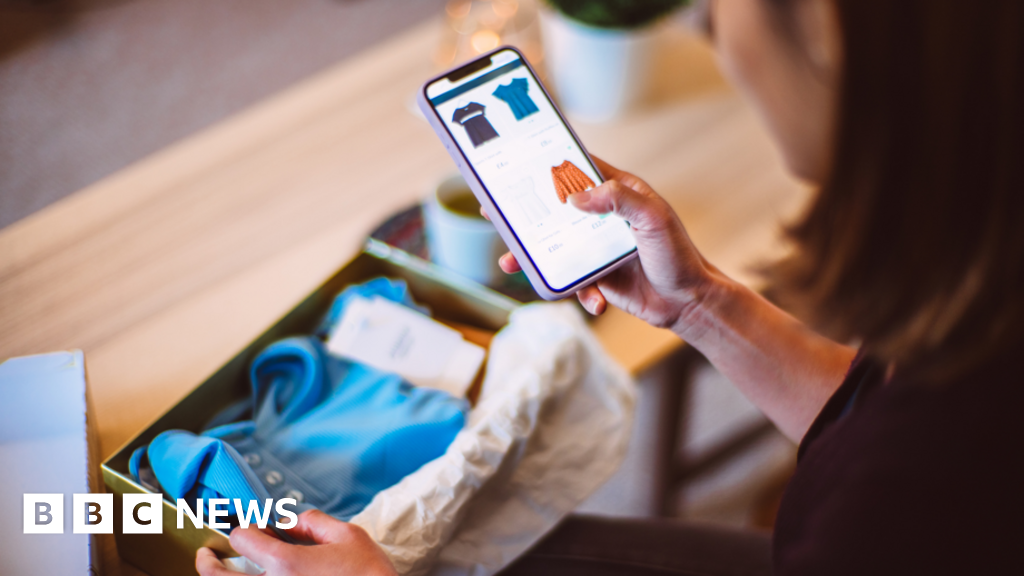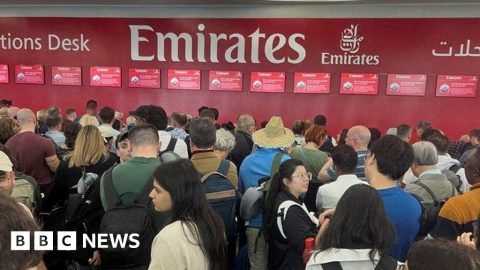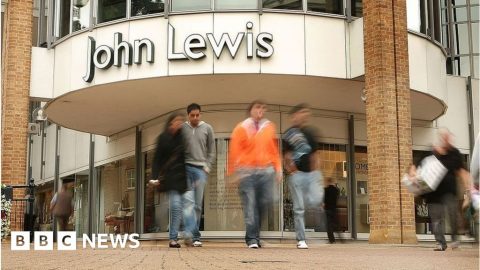
The US Postal Service (USPS) has resumed accepting parcels from mainland China and Hong Kong following a brief suspension after Donald Trump changed the rules on import taxes.
USPS said it was working with US Customs and Border Protection to ensure “the least disruption” to package deliveries as the US president announced trade measures which included higher tariffs on Chinese goods.
The US also ended a policy that allowed small packages worth $800 (£641) or less to be sent to America without paying taxes or fees.
Chinese retailers, such as online giants Shein and Temu, have used the exemption to ship low-value packages to the US and have benefitted from similar rules in the UK and the European Union (EU) to reach millions of customers.
The explosion of parcels being shipped under the loophole has prompted increased scrutiny in recent years. While all retailers use the exemption, those who sell fast-fashion and cheap goods have seen their sales soar.
It has prompted concerns that domestic retailers are being undercut and governments are missing out on potential tax income.
Nick Stowe, chief executive of Monsoon Accessorize, told the BBC’s Today programme he was in support of the changes in the US.
“It has long been a complaint of UK retailers, European retailers as well as the US retailers that Shein are exploiting this loophole, not paying customs duty and they have built a business at an industrial scale,” he said.
America’s change to stop low-value products being shipped tax-free under the so-called “de minimis” exemption came into force on Tuesday.
The postal service initially halted parcels from China overnight but restarted them on Wednesday, stating: “The USPS and Customs and Border Protection are working closely together to implement an efficient collection mechanism for the new China tariffs to ensure the least disruption to package delivery.”
Letters are not affected by any changes announced by Trump, who set out plans to impose a 10% tariff on all goods imported to the US from China.
Shipping and courier giant DHL said that it was “working with our customers, suppliers, and other stakeholders to navigate these changes” to avoid disruptions to supply chains and “limit adverse impact on US importers and consumers”.
Meanwhile the EU – which has been exploring similar measures to the US – announced that Temu and Shein would be liable for the sale of unsafe and dangerous products on their platforms.
In the EU, retailers benefit from paying no tax on parcels worth less than €150 (£124), a policy critics argue gives those firms an unfair advantage.
According to the European Commission, 4.6 billion low-value items worth below €22 were imported into the EU last year, 91% of which came from China – double that of 2023.
The EU announced that it would increase customs checks on goods shipped directly by ecommerce retailers.
It also said it would coordinate a joint investigation by the Consumer Protection Cooperation (CPC) Network into Shein based on suspicions that the company infringes EU consumer protection rules.
Shein said it would engage with the CPC agencies and the EU so consumers “can shop online with peace of mind”.
“We want to see a competitive e-commerce sector that keeps consumers safe, offers convenient products, and is respectful of the environment,” said EU tech chief Henna Virkkunen
In the US, close to half of all parcels entering the country under de minimis exemptions were sent from China, according to a 2023 report by US Congress.
Officials have pointed out that the large flow of parcels entering the country through this exemption made it increasingly difficult to screen them for possible illegal goods.
Changes to the tax exemption in the US under President Joe Biden were already in progress before Trump took office, but Trump has gone further to extend tariffs to all China goods being imported into the US, including fashion items and toys.
In response, China said it would hit back with its own levies and place PVH, the US company that owns designer brands Calvin Klein and Tommy Hilfiger, on its “unreliable entity” list for alleged “discriminatory measures against Chinese enterprises”.
Trump had been expected to speak to his Chinese counterpart Xi Jinping in the coming days but on Tuesday the US president said he was in “no rush” to hold talks.
Some retailers in the UK have called on the government to take action on low-value products being imported to the country free of tax.
“The rules weren’t made for a company sending individual parcels [and] having a billion-pound turnover in the UK without paying any tax,” said Julian Dunkerton, boss of clothing chain Superdry.
Shipments worth less than £135 that are sent directly to UK shoppers do not face import duties, but firms bringing in larger consignments do.
Mr Stowe of Monsoon Accessorize, said he didn’t think the parcels should be stopped but ecommerce companies should pay their “fare share”.
The BBC has contacted the UK government, Shein and Temu for comment.
Are you in the US and are worried about your deliveries from China? Send the BBC your story.









Recent Comments